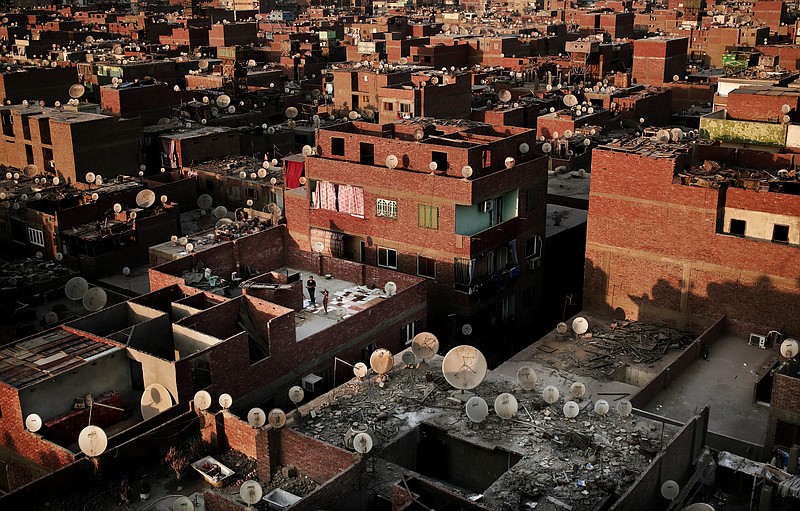CAIRO (AP) — Egypt’s fast-growing population hit 100 million Tuesday, the official statistics agency announced, presenting a pressing problem for an already overburdened country with limited resources.
The staggering figure is an increase of 7 million since the publication of the latest census results in 2017.
Egypt’s population has tripled since 1960, with the annual growth rate peaking in 1987 at nearly 2.8 percent. Every day nearly 5,000 people are born in Egypt, the agency estimates.
The country is trying to cope with resurgent birth rates and a “youth bulge” that has reached a peak. Roughly 62 percent of the population are below age 29, according to the U.N. Population Fund.
“We’re looking at the largest cohort of young people in Egypt’s history. This number can translate into severe challenges or opportunities depending on how the country chooses to invest,” said Aleksandar Bodiroza, the Egypt representative for UNFPA.
The vast majority of the country’s population is crammed in urban areas around the Nile, some 7 percent of Egypt’s territory. The capital, Cairo, and its twin province of Giza, are home to a combined population of 19 million, according to Tuesday’s figures.
Cairo has become so congested and overpopulated President Abdel Fattah el-Sissi’s government has decided to build a vast new administrative capital in the desert, which critics said further drains resources in a country at risk of drought.
The milestone quickly set off alarm over looming economic strain.
“The population problem is one of the biggest challenges facing the state,” said Hala el-Said, the minister of planning and economic development.
Egypt, the most populous Arab nation, has been scrambling to stem its soaring birth rate. El-Sissi has repeatedly lectured Egyptians about the perils of overpopulation, describing it in one speech as “among the biggest threats facing Egypt,” along with terrorism.
The government recently rolled out an ambitious family planning campaign called “Two is Enough,” trying to challenge deep-rooted cultural traditions in rural areas, where contraception is scarce and children are viewed as a vital labor source and insurance policy for old age. The program’s advertising blitz includes musical videos poking fun at outdated conceptions of child-rearing in rural areas, and billboards with catchy slogans.
Several government ministries also teamed up with the UNFPA to launch a more hands-on campaign called “Your Right to Plan,” which provides access to birth control in hard-to-reach rural parts of Egypt, with funding from the European Union.
“We are optimistic and have reason to believe these strategies are working,” said Bodiroza, citing a recent stabilization of birth rates in most of Upper Egypt.
The government faces heavy pressure to provide for an exploding population under increasingly trying circumstances. One third of the country lives in poverty, according to the statistics agency. Economic discontent is mounting. To stave off financial collapse as part of a bailout from the International Monetary Fund, the government has pushed through tough reforms over the past three years.
The austerity measures have slashed fuel subsidies and dramatically hiked up prices of everything from subway fares to utility costs. The benefits have yet to trickle down to working-class Egyptians who are struggling to cover their basic needs. Youth unemployment hovers around 34 percent, the World Bank reported.
In a press conference to mark the occasion, el-Said warned unchecked growth would compound the country’s concerns and jeopardize its economic reforms, resulting in a grave outlook: “a decline in shares of housing, educational and health services and job creation.”

